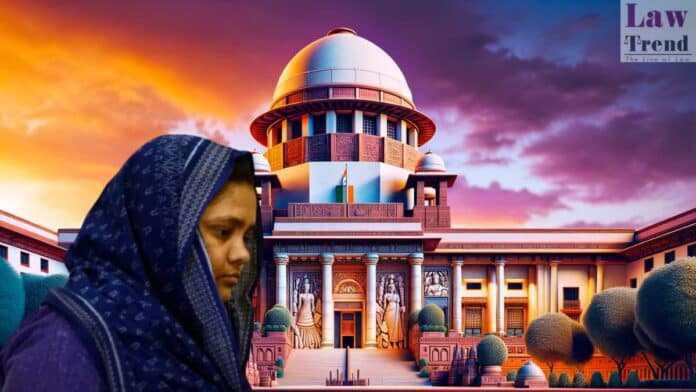The Gujarat government was “complicit and acted in tandem with one of the convicts” who had approached the top court with his plea for premature release in the Bilkis Bano case, the Supreme Court on Monday said and slammed the state government for “usurpation of power” while granting remission to the convicts.
A bench of Justices B V Nagarathna and Ujjal Bhuyan said it fails to understand why the State of Gujarat did not file a review petition against the judgment dated May 13, 2022, which directed the Gujarat government to consider the plea of a convict for premature release as per the State policy of July 9, 1992.
The Gujarat government in 1992 came out with a fresh remission policy under which pleas of those convicts who were sentenced to life imprisonment and had served a minimum of 14 years of sentence could be considered after a favourable opinion from the Jail Advisory Board.

“Taking advantage of the May 13, 2022 order of this court, other convicts also filed remission applications and the Gujarat government passed remission orders. Gujarat was complicit and acted in tandem with respondent No. 3 (convict Radheshyam Shah) in this case. This court was misled by suppressing facts. Use of power by Gujarat was only an usurpation of power by the State,” the bench said.
The top court also nullified its May 13, 2022, order of another bench asking the Gujarat government to consider a remission plea of one of the convicts as the order was obtained by “playing fraud on the court” and by suppressing material facts.
“If the convicts can circumvent the consequences of their conviction, peace and tranquillity in the society will be reduced to a chimaera. It is the duty of this Court to correct arbitrary orders at the earliest and to retain the foundation of trust of the public,” the court said.
The bench said the Gujarat government usurped the powers of the Maharashtra government by acting in furtherance of the judgment dated May 13, 2022, which in “our opinion is a nullity”.
It was the State of Maharashtra that was the appropriate government to consider the remission and it was this very apprehension that led this court to transfer the trial out of the State, it said.
“The exercise of power by the State of Gujarat is an instance of usurpation of power and abuse of power. This is a classic case where the order of this court was used to violate the rule of law by granting remission,” the bench said.
The top court said a breach of the rule of law amounts to the negation of the right to equality.
“Rule of law means no one, how high soever, is above the law. There can be no rule of law if there is no equality. The court has to step in to enforce the rule of law. This Court must be a beacon in upholding the rule of law. In a democracy, the rule of law has to be preserved.
“Compassion and sympathy have no role to play. It is through the power of judicial review conferred on independent institutions, like High Courts and the Supreme Court, that the rule of law is preserved. Rule of law must be preserved unmindful of the ripples of the consequences,” the bench said.
Also Read
It said justice cannot be done without adherence to the rule of law and justice encompasses not just the rights of the convicts but also the rights of the victims.
“Allowing convicts to remain out of prison will amount to giving an imprimatur to invalid orders. The convicts were in prison for little over 14 years and enjoyed liberal parole and furlough. We hold that the deprivation of liberty to the respondents (convicts) is justified. They have lost their right to liberty once they were convicted and imprisoned. Also, if they want to seek remission again, it is important that they have to be in jail,” the bench said.
Bilkis Bano was 21 years old and five months pregnant when she was raped while fleeing the horror of the communal riots that broke out after the Godhra train-burning incident. Her three-year-old daughter was among the seven family members killed in the riots.
All 11 convicts were granted remission by the Gujarat government and released on August 15, 2022.







